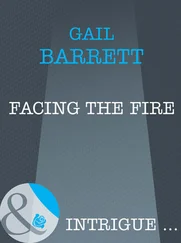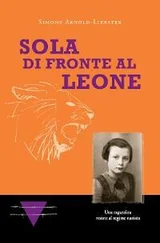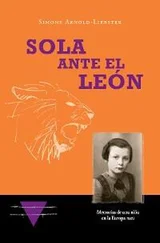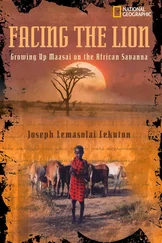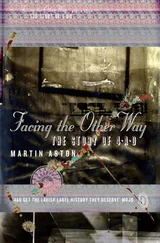My inner voice kept saying, “You didn’t ask permission. But if I ask Mum, she’ll say no! I’m the nurse; I have to learn. I’m not going to risk being told ‘no’!” My parents had already refused to let me read the book called the Bible. It was very exciting to do things on my own. I really liked the feeling of doing things in secret.
The doctor book became my favorite secret reading. I would have liked to copy the diagrams, but I might have been caught! And there were so many strange words. The description of the sicknesses usually ended with the same words: “It results in death.”
“Nothing happens outside the will of God,” our priest always said. “God decides on the hour of death.” But as pictured in this book, the means by which we can die were terrifying. Yet I had to understand the information. I had promised the girls. I decided to ask Mum.
Carefully, one day I asked, “Mum, what is tuberculosis?”
“A sickness. But where did you get that question from?”
I had to be careful how I answered. “Well, we talked about it when we passed in front of Jacqueline’s house. Blanche said she’s not allowed to go to school.”
“That’s right. She does have tuberculosis; she already had it when she took care of Frida as a baby.”
“Did Frida get it from her?”
“Probably. That’s called contagious. You see, Simone, when I constantly remind you not to sit on the sidewalk, it is not only because dogs ease themselves but also because some people spit!”
“Oh, yes! I read they even spit out their lungs!”
“What did you say?”
“I said I was afraid they spit out their lungs. Is it what Uncle Louis had, the sickness he died from?”
“It is.”
“Then does Aunt Eugenie have tuberculosis?”
“God be blessed, no!”
I got the information and the necessary explanation. I could go to school and tell the girls not to pick anything up from the streets because lungs might be lying there. As a nurse, it was my duty to make them fear tuberculosis just as I did.
Summer vacation had finally arrived, and Dad was on vacation, too—the first one he ever took. He didn’t want to take time off from work. “But I have to—the factory will close down for two weeks.” This was because, from 1937 onward, all factories in France were required by law to close down for vacation as a result of concessions won by the strikers. At least this forced vacation meant that Dad’s mood would improve.
Dad had something new to talk about. “Emma, what about buying those bicycles?”
“Can we afford it?”
My five-franc baby doll on the shelf gave me that uncomfortable feeling again.
“Well, we would have to take the money from the bank. I don’t like that idea because something unforeseen might happen. But on the other hand, bicycles are also an investment. We could cycle through the mountains with them.”
Our brand new bicycles were the admiration of our whole neighborhood. Both shiny cycles were dark red with gold trim and had three speeds. There was a special seat for me on the handlebars of Dad’s bike and another one on the rear of Mother’s bike. I would sit on Dad’s when climbing up the mountain, but sit on Mother’s when going down. We planned to go up to the Lakes Longemer and Gerardmer. Then I found out that we were supposed to take my cousin Maurice along—that was bad news for me.
Maurice was a tall fourteen-year-old with blond hair and steelblue eyes. He bragged constantly. Mum said he was a “poor orphan.” He would only go cycling with us, and we would bring him back before going to Bergenbach. This meant I had to endure.
I figured out how to handle him. I did whatever he did, climbing, running, never complaining. And when he said he was tired, I would say, “I’m not!”
Back at Grandma’s, I declared proudly to my astonished cousin Angele, “From now on, I’m a boy.” And in order to prove it, I climbed up a mirabelle tree to shake the small sweet yellow plums from the upper branches. When I jumped down, my dress got caught on a branch. I swung back and forth until the skirt pulled apart, liberating me. I fell to the ground flat on my stomach. Angele ran away screaming, and Joly, the Alsatian puppy, tugged at my dress, tearing it to pieces. I got slowly and painfully back on my feet. Do boys cry? I decided to bite my lip and pretend I was okay. I had my basket full of mirabelles. I dragged it home, struggling with the heavy load.
All of the animals on Grandma’s farm had to have nice faces. If they didn’t, Grandma would sell them. Joly was a beautiful, well-built dog. Joly was also very strong. I thought that it was a waste to have Joly only do the job of barking while Uncle Germain and Grandpa had to bring the hay down on a huge sled.
“Angele, we could train the dog to pull a sled, so we could load it!” We took Joly and Uncle Germain’s homemade sled and went uphill behind the house. We attached Joly to the sled. At first the dog refused to walk and we had to pull him. Then he felt that something was following him, and he started to run faster and faster downhill. We laughed, but only in the beginning. Soon our laughter turned to panic. Joly ran down the eight steps between Germain’s workshop and the farmyard. The sled banged down the stone steps. The terrific noise brought everyone outside, except for deaf Uncle Germain who was sawing wood. Joly was determined to get rid of his harness. He jumped into the granitehewn fountain, shattering the sled to pieces and splashing everyone. His wild eyes bulged, his tongue hung out. We both were sent to bed for what the adults called “mischief.” The adults just didn’t understand our brilliant idea.

Taking a big, black book out of her bag, Mum called to me. “Look what I bought, a Catholic Bible.”
“What’s a Bible?”
“It is the Word of God, written for men to guide their lives.” I tried to read from it, but the print was too small. I kept stumbling over the words.
“Every morning, while you eat breakfast, I’ll read to you.” At least my mother didn’t treat me like a baby!
“Sit down next to me,” she said, and turning to the first page, she showed me the signatures of some cardinals and bishops. “You see? This has the approval of the Catholic church and the pope. Every parish priest has a copy. Dad wouldn’t forbid us to read a Catholic Bible, would he?”
“He can’t.”
“I’ll leave the book here next to the radio. We won’t hide it, will we?”
“No. That way Dad can read it too.”
But he didn’t.
The weeks that Dad worked the morning shift, I got the promised Bible reading while I ate my jam-and-butter sandwiches and drank hot chocolate, which perfumed the whole apartment. Sometimes Mother would read a sentence or two twice and add, “Remember this,” or “Did you hear?” followed by the reading of a few words out of the previous sentence. This made it easier for me to learn verses and repeat them. On those Bible-reading days, I had something special to share with my classmates.
I thought that Dad might be sick—even contagious—because he started keeping away from us and even out of the sight of our neighbors. I worried a lot about him. Day after day, Mum would make Dad’s favorite dishes. Yet, day after day, it was the same scenario. With outstretched hand, a scowl, and a harsh voice, Dad would say, “Not so much; I’m not hungry.”
I felt bad. Dad was living on cigarettes. After supper he would quickly get up from the table to smoke a cigar and listen to the evening news. Zita looked up at him, waiting to be petted. Dad didn’t notice Zita’s imploring eyes. But when the time came to take Zita out, Dad didn’t ask me or Mum. He would go out, not for a short time but for a long walk.
Читать дальше





